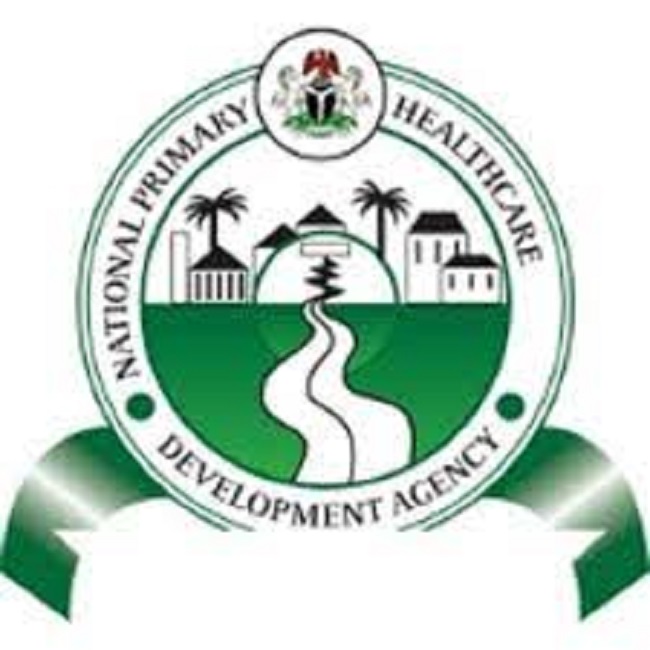The Federal Government through the National Primary Health Care Development Agency (NPHCDA) has disclosed that a total of 1,692,762 children, ranging from 6 months to 4 years of age, have been diligently administered the Pentavalent vaccine which serves as a vital safeguard against diphtheria disease.
It also said, 3,166,419 children aged 4 to 14 years have received the Td vaccines, to further strengthening safeguards from the disease among children and teenagers adding that the ongoing vaccination phase has made a tangible difference in protecting the lives of 4,859,181 children across affected states.
The Executive Director of NPHCDA, Dr Faisal Shuaib at a press briefing of the National Diphtheria Emergency Task Team on Thursday, also said, 1,111,310 children have been administered with vaccines and 544,737 children with Pentavalent vaccines in phase 2 of the immunisation campaign in Kano state which is the epicenter of the diphtheria epidemic
Shuaib also said, that Katsina, which is another hotspot in the diphtheria outbreak, has vaccinated 403,252 children with Td vaccines and 255,075 children with Pentavalent vaccines adding that Kaduna, Bauchi, Borno, Jigawa, and Yobe have not faltered in their efforts either, collectively securing the health and well-being of hundreds of thousands of children through dedicated vaccination campaigns.
Shuaib said the collective achievement was built upon an earlier phase 1 response conducted in August 2023, during which the agency covered 2,370,918 children, ensuring they received the necessary vaccinations to shield them from the Diphtheria menace.
According to him, “those figures not only illustrate the agency’s unrelenting commitment to safeguarding the nation’s children but also serve as a testament to the power of collective action in the face of adversity.
“It is crucial to recognize that our ongoing outbreak response is seamlessly integrated with the indispensable daily routine immunization services extended to all 36 states and the Federal Capital Territory (FCT).
“The figures detailed above represent the targeted and strategic interventions to address the Diphtheria outbreak, and they are not inclusive of the routine vaccinations which continue to be delivered as part of our daily public health services.
“This dual approach, combining outbreak response with routine immunization, is a holistic strategy to ensure that while we are focused on controlling the Diphtheria outbreak, we do not lose sight of other vaccine-preventable diseases that tend to occur in epidemic proportions.
“We do not want to extinguish the Diphtheria fire and then start chasing a measles or pertussis outbreak in quick succession.”
He assured that the diphtheria vaccine has been proven to be remarkably effective in preventing the disease.
“By ensuring that our children and communities are vaccinated, we create a formidable defense against Diphtheria’s spread. Vaccination is not just a personal choice; it is a collective responsibility that can protect our most vulnerable citizens and preserve the health of our nation.
“As we have mentioned in the past, vaccines are powerful tools to prevent disease. When they are injected into the body, they cause biological reactions that could show up as side effects or adverse events.
“These adverse events are usually short-lived, examples are pain and swelling at the injection site, mild fever, weakness and irritability especially among children.
“In this vaccination phase, we have recorded 6,505 mild adverse events. No serious adverse effect directly linked to the vaccination has been recorded. We will continue to work with the states and local government to document these events.”
“It is important to note that for complete protection, three doses of these vaccines are required. The Federal Government remains fully committed to supplying the necessary vaccines to reach the target population and effectively reduce the burden of diphtheria in these areas,” he added.
Earlier the Director General of NCDC, Dr Ifedayo Adetifa disclosed that as of 19th of October 2023, there have been 15,060 reported suspected cases of diphtheria out of which 9,478 were confirmed cases from 137 LGAs in 20 States including the FCT.
While giving a breakdown by states, the DG said “Kano recorded 7,747 (81.7%), Yobe – 841, Bauchi – 369, Katsina – 275, Borno – 164, Jigawa -24, and Kaduna – 18.
“Lagos – 8, Zamfara – 7, FCT – 7, Lagos – 6, Gombe – 5, Sokoto – 4, Osun – 3, Niger – 2, Cross River, Enugu, Imo, Nasarawa, Kebbi, Taraba – 1 each.”
Adetifa said out of the 9,478 confirmed cases, 6,777 (71.5%) were aged 1 to 14 years, while Infants is less than 1%, and 1 to 4 years represented 14.1%, 5-9 years: 30.6%.
“About 10-14 years: 26.8%, Adults ≥ 20 years: 16%● Finalisation of the development of the National Diphtheria Laboratory Guidelines is underway.”
Meanwhile, the World Health Organisation’s representative at the briefing Dr Blaise BathondoliTogether with national and state health authorities as well as partner organizations, said WHO is supporting reactive vaccination campaigns in 40 LGAs across seven states including Kano, Katsina, Kaduna, Bauchi, Yobe, Jigawa, and Borno.
“The total targeted population across these states for the second round of reactive vaccinations is over 5.3 million children.
“Specifically, WHO supported the training of vaccination teams, as well as the development and validation of micro-plans across the implementing LGAs.
“WHO has invested in providing a range of medical supplies. This includes life-saving Diphtheria Antitoxin (DAT), erythromycin and other antibiotics to treat infected individuals, as well as Personal Protective Equipment to ensure that healthcare workers carry out their duties safely.
“We have established supply routes and logistics chains to make sure these supplies reach the most affected areas promptly.
“Diagnosis is a key aspect of disease control. WHO is therefore overseeing the procurement of critical lab supplies.
“Through its field personnel, WHO is supporting Nigeria’s health authorities across the country with active case search, contact tracing, and data collection,” he added.
READ ALSO FROM NIGERIAN TRIBUNE






